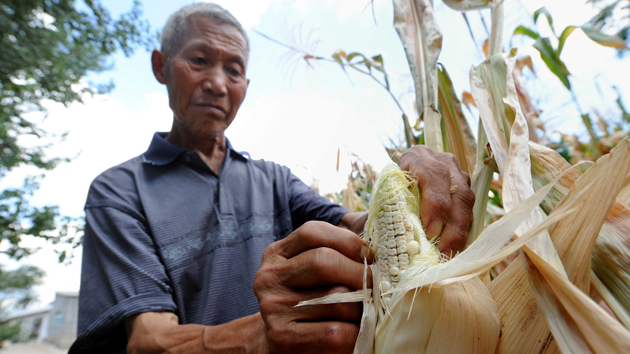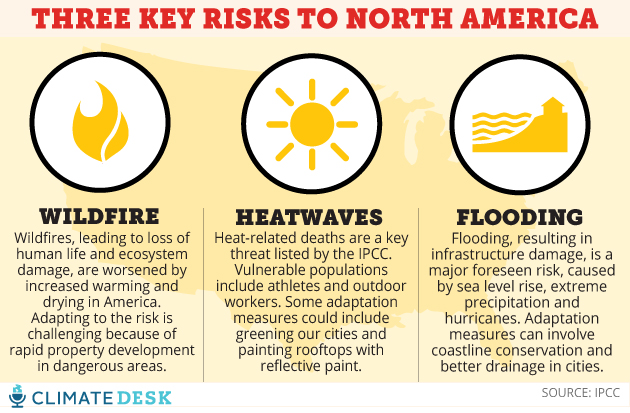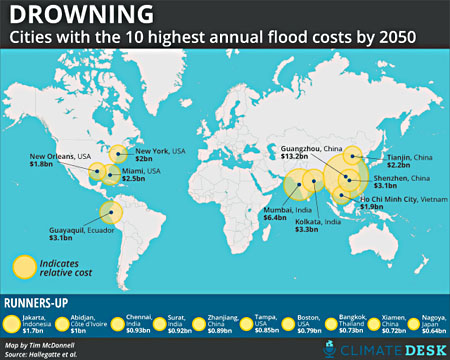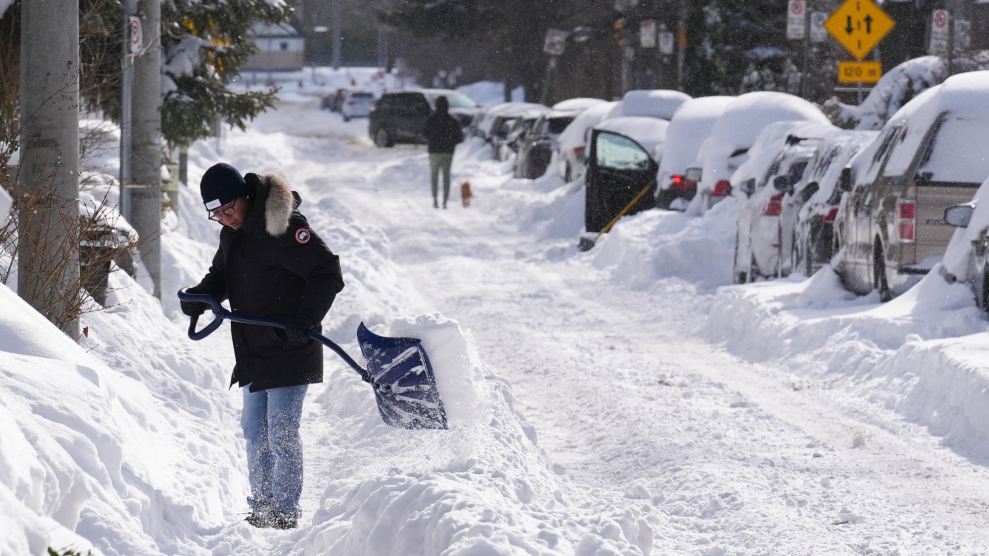
Supplies of some of the world's most important staple crops could drop, thanks to global warming. Wu Dongjun/Xinhua/ZUMA
The impacts of climate change are likely to be “severe, pervasive, and irreversible,” the chair of the Intergovernmental Panel on Climate Change said Sunday night in Yokohama, Japan, as the world’s leading climate experts released a new survey of how our planet is likely to change in the near future, and what we can do about it.
Here’s what you need to know:
- We’re already feeling the impacts of climate change. Glaciers are already shrinking, changing the courses of rivers and altering water supplies downstream. Species from grizzly bears to flowers have shifted their ranges and behavior. Wheat and maize yields may have dropped. But as climate impacts become more common and tangible, they’re being matched by an increasing global effort to learn how to live with them: The number of scientific studies on climate change impacts, vulnerability, and adaptation more than doubled between 2005, before the previous IPCC report, and 2010. Scientists and policymakers are “learning through doing, and evaluating what you’ve done,” said report contributor Kirstin Dow, a climate policy researcher at the University of South Carolina. “That’s one of the most important lessons to come out of here.”
- Heat waves and wildfires are major threats in North America. Europe faces freshwater shortages, and Asia can expect more severe flooding from extreme storms. In North America, major threats include heat waves and wildfires, which can cause death and damage to ecosystems and property. The report names athletes and outdoor workers as particularly at risk from heat-related illnesses. As the graphic below shows, coastal flooding is also a key concern.
 James West/Climate Desk
James West/Climate Desk - Globally, food sources will become unpredictable, even as population booms. Especially in poor countries, diminished crop production will likely lead to increased malnutrition, which already affects nearly 900 million people worldwide. Some of the world’s most important staples—maize, wheat, and rice—are at risk. The ocean will also be a less reliable source of food, with important fish resources in the tropics either moving north or going extinct, while ocean acidification eats away at shelled critters (like oysters) and coral. Shrinking supplies and rising prices will cause food insecurity, which can exacerbate preexisting social tensions and lead to conflict.
- Coastal communities will increasingly get hammered by flooding and erosion. Tides are already rising in the US and around the world. As polar ice continues to melt and warm water expands, sea level rise will expose major metropolitan areas, military installations, farming regions, small island nations, and other ocean-side places to increased damage from hurricanes and other extreme storms. Sea level rise brings with it risks of “death, injury, ill-health, or disrupted livelihoods,” the report says.
- We’ll see an increase in climate refugees and, possibly, climate-related violence. The report warns that both extreme weather events and longer-term changes in climate can lead to the displacement of vulnerable populations, especially in developing parts of the world. Climate change might also “indirectly increase” the risks of civil wars and international conflicts by exacerbating poverty and competition for resources.
- Climate change is expected to make people less healthy. According to the report, we can expect climate change to have a negative impact on health in many parts of the world, especially poorer countries. Why? Heat waves and fires will cause injury, disease and death. Decreased food production will mean more malnutrition. And food- and water-borne diseases will make more people sick.
- We don’t know how much adaptation is going to cost. The damage we’re doing to the planet means that human beings are going to have to adapt to the changing climate. But that costs money. Unfortunately, studies that estimate the global cost of climate adaptation “are characterized by shortcomings in data, methods, and coverage,” according to the IPCC. But from the “limited evidence” available, the report warns that there’s a “gap” between “global adaptation needs and the funds available.”
- There’s still time to reduce the impacts of global warming…if we cut our emissions. Here’s the good news: The IPCC says that the impacts of climate change—and the costs of adaptation—will be “reduced substantially” if we cut our emissions of greenhouse gases.
















